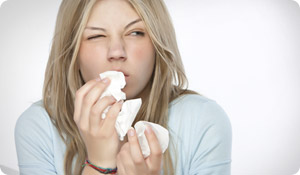
Herpes is a powerful virus that causes everything from annoying cold sores in the mouth to painful genital warts. And while herpes isn't curable, antiviral medications can not only reduce the number of outbreaks, but they can also shorten the length of these outbreaks and reduce the severity of the symptoms.
Here, commonly the answers to commonly asked questions that will tell all you need to know to treat herpes effectively.
Q: What's the difference between the herpes that causes cold sores and the herpes that causes genital warts?
A: There are actually two types of herpes simplex virus (HSV). With Herpes Simplex Virus 1 (HSV-1), symptoms can present as cold sores on the lip although it also can cause genital warts, explains Elizabeth Poynor, MD, a gynecologist in private practice who's associated with Lenox Hill Hospital in New York City. Herpes Simplex Virus 2 (HSV-2) causes genital symptoms, which could be anything from sores and blisters to cuts, bumps, aches and pains.
Q: How common is genital herpes and how can I get it?
A: It's very common in the United States--about 1 in 5 adults have it, and it's spread from skin-to-skin contact. In other words, you don't necessarily have to have sex with someone to get it. Since some of the cases are asymptomatic, you may have herpes without knowing it.
Q: Will taking antibiotics help?
A: It's a virus, so it won't respond to traditional antibiotics. But there are medications that can help.
Q: What oral medications are available to treat herpes?
A: Both acyclovir and valacyclovir can help relieve the pain and itching of herpes. These also can help with herpes zoster, better known as shingles, a disorder that causes intense itching and discomfort. The antiviral medication helps the sores heal and can prevent new ones from forming, too. "If you take the medication for shingles within the first 24 to 48 hours after getting symptoms, it can shorten the outbreak, lessen the pain and decrease the possibility of severe post-shingles complications," says Daniel Baxter, MD, chief medical officer of the Ryan Community Health Center in New York City. It's important to take the pills as soon as you know you have an outbreak.
"We generally give this medicine to people during an initial outbreak to decrease the time it takes to recover and to decrease the pain," says Poynor.
Q: Is there any other reason to use antiviral medications besides during an outbreak?
A: Some doctors prescribe it to use in a low dosage even when there is no outbreak, as a preventive measure.
Q: Are antiviral medications only available as pills?
A: The medication is also available in a cream, which can be put directly onto lesions, and as eye drops for those who may have symptoms in the eyes.
Sources
Frequently asked questions about genital herpes. American Social Health Association.
http://www.ashastd.org/pdfs/FAQ-HSV.pdf





